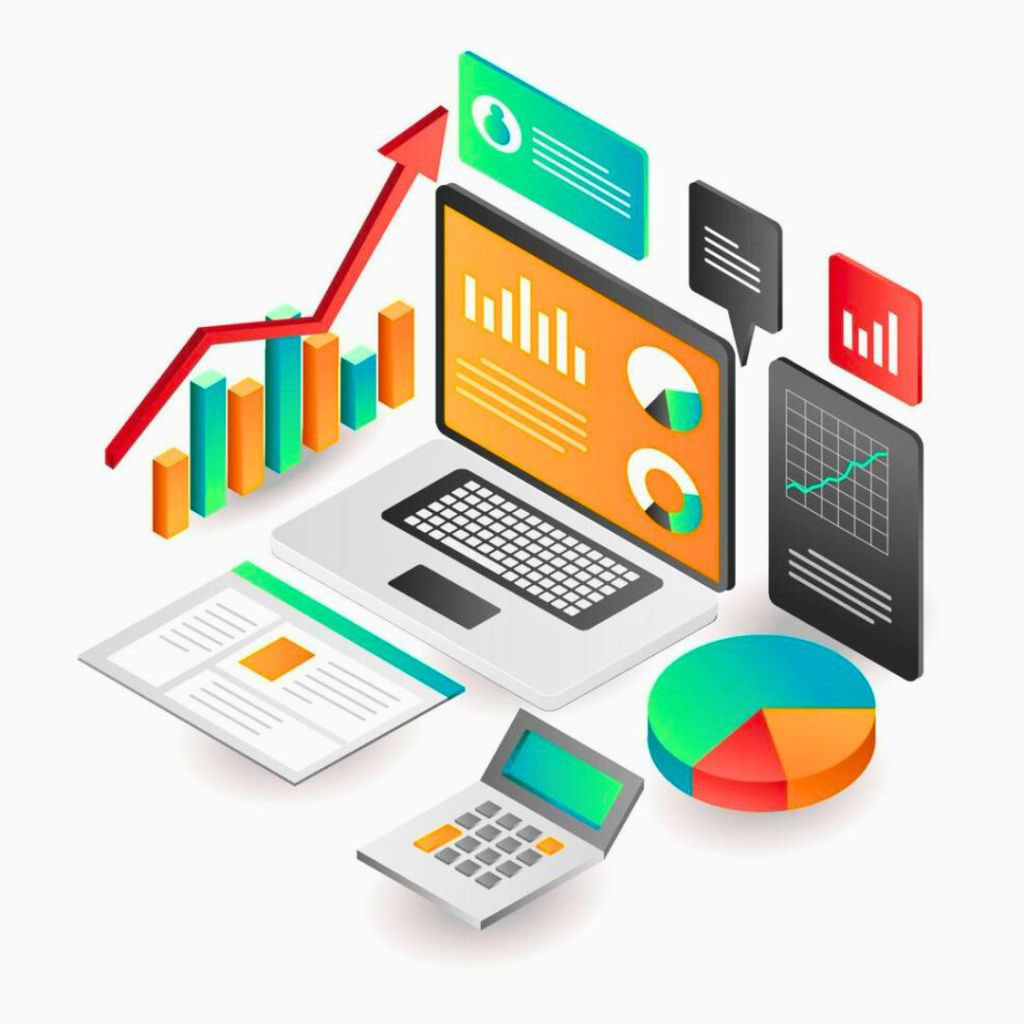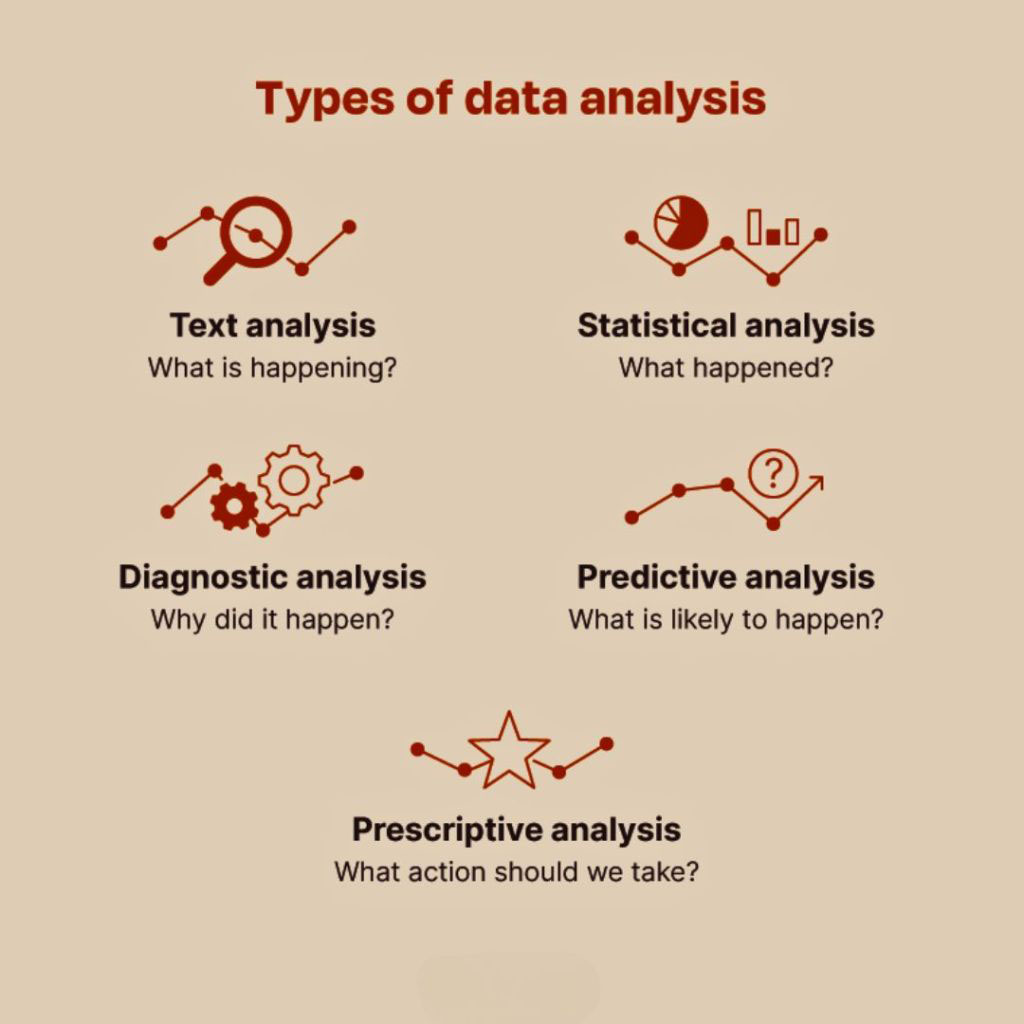Data plays a crucial role in making effective business decisions in the current era of technology. The capacity to proficiently and accurately examine data can determine the disparity between flourishing and merely enduring in a fiercely competitive market environment. Due to technology advancements, companies now have the ability to utilize sophisticated data analysis tools to extract crucial insights, make informed decisions, and maintain a competitive edge.
Harnessing the Power of Data Analysis Tools
In business, data analysis tools are pivotal in extracting meaningful information from vast datasets. These tools are available in several formats, from essential spreadsheet software to sophisticated analytics systems, each tailored to meet individual requirements and preferences. Let’s delve into some of the most prominent data analysis tools and how they can benefit your business.
Understanding Data Analysis Tools
Microsoft Excel:
Thanks to its user-friendly interface and versatile functionality, Microsoft Excel remains a staple in data analysis. With Excel, businesses can easily organize, manipulate, and visualize data. Its array of formulas, pivot tables, and charting capabilities make it a valuable tool for beginners and seasoned analysts.
Tableau:
Tableau is renowned for its intuitive data visualization features, allowing users to create interactive dashboards and reports that facilitate insightful decision-making. The software’s drag-and-drop interface will enable people with varying levels of expertise to utilize it efficiently. At the same time, its powerful analytics features allow a thorough examination of data trends and patterns.
Python and R Programming:
Python and R are indispensable tools for more advanced data analysis tasks. With libraries such as Pandas, NumPy, and Matplotlib in Python and packages like ggplot2 in R, analysts can perform complex data manipulations, statistical analysis, and data visualization with precision and efficiency.

Benefits of Utilizing Data Analysis Tools
Improved Decision Making:
Businesses can base their decisions on concrete evidence rather than intuition or guesswork by leveraging data analysis tools. This leads to more informed choices aligned with organizational goals and objectives.
Enhanced Efficiency:
Data analysis tools streamline the process of data manipulation and interpretation, saving valuable time and resources . Tasks that once took hours or days to complete can now be automated or expedited, allowing teams to focus on high-priority initiatives.
Competitive Advantage:
Staying ahead is paramount in today’s dynamic business environment. Data analysis tools give businesses the insights they need to identify emerging trends, capitalize on market opportunities, and mitigate potential risks.
Increased Productivity:
With user-friendly data analysis tools, employees can analyze data more efficiently and collaborate effectively across departments. This promotes a culture where decisions are based on data and allows teams to collaborate towards shared goals.
Amidst the extensive array of data analysis tools, selecting the appropriate one for your business can be a formidable task. Every tool possesses distinctive attributes, functionalities, and levels of complexity to master. To make a well-informed selection, it is crucial to thoroughly understand your business requirements and meticulously assess the various available alternatives. Let’s explore the key factors when choosing your organization’s proper data analysis tool.
Data Governance and Quality Assurance
- Importance of establishing data governance frameworks
- Ensuring data accuracy, consistency, and reliability
- Implementing data quality assurance processes
- Role of data stewardship in maintaining data integrity
Emerging Trends in Data Analysis
- AI and machine learning advancements in data analysis
- Incorporating predictive analytics for proactive decision-making
- Real-time data processing and analytics
- Data analytics in the context of Internet of Things (IoT) applications
Understanding Your Business Requirements
Before diving into the sea of data analysis tools, take a step back and assess your business requirements. Consider the nature of your data, the complexity of analysis needed, and your team’s skill set. Are you primarily dealing with structured or unstructured data? Do you need real-time analytics, or is a periodic analysis sufficient? Understanding these factors will guide you toward tools that align with your business goals.
Scalability and Performance
The scalability of a data analysis tool is crucial, especially for growing businesses. Consider whether the tool can handle increasing data and analysis complexity as your business expands. Performance is equally important – a tool that can process and analyze data swiftly ensures that your team can make timely decisions without experiencing lags or delays.
User-Friendly Interface
The usability of a data analysis tool plays a significant role in its effectiveness. An intuitive, user-friendly interface reduces the learning curve for your team, enabling them to extract insights efficiently. Look for tools with drag-and-drop functionality, straightforward navigation, and comprehensive documentation. This guarantees that individuals with varying levels of expertise, whether they are beginners or experts, can successfully utilize the product.
Integration Capabilities

Efficiently incorporating a data analysis tool into current systems is crucial for optimizing its value. Select a technology that seamlessly connects with your existing software stack, databases, and other pertinent applications. This optimizes workflows and guarantees that your team can retrieve and examine data from diverse sources without complexities.
Cost Considerations
While many robust data analysis tools are available, it’s essential to consider your budget constraints. Some tools may offer robust features but come with a hefty price tag. Assess all the charges associated with owning a product, including licensing fees, training expenditures, and possible supplementary costs for support or customizations. Opt for a tool that aligns with your budget while meeting your business needs.
Security and Compliance
Data security is a top priority for businesses, especially when dealing with sensitive information. Ensure that the data analysis tool complies with industry standards and regulations. Ensure the protection of your data by seeking out features such as encryption, access limits, and audit trails. Selecting a tool with robust security features helps reduce the chances of data breaches and guarantees the accuracy and reliability of your study.
Training and Support
Consider the extent of training and assistance provided by the tool’s vendor. A tool may have excellent features, but its potential remains to be tapped if your team struggles to use it effectively. Look for tools that provide comprehensive training resources, tutorials, and responsive customer support. This ensures that your team can quickly become proficient in using the tool and address any challenges.
The importance of data analysis tools in modern business must be considered. From Microsoft Excel to advanced analytics platforms like Tableau, these tools empower organizations to harness the power of data and derive actionable insights that drive success. Businesses may use the power of data-driven decision-making and strategic investments in tools and technologies to unleash fresh avenues for growth, innovation, and competitive advantage in a constantly changing environment.
As you embark on your journey to boost your business with top-notch data analysis tools, remember that the key lies in the tools and how you leverage them to extract value from your data. Whether you’re a small startup or a multinational corporation, embracing a data-centric mindset can pave the way for sustainable growth and long-term success. Initiate the initial action to fully unleash the capabilities of your data at present and observe how it revolutionizes your business operations. Visit elatre.com to learn more about how data analysis tools can revolutionize your organization’s approach to decision-making and drive tangible results. Your future success awaits – seize it with the power of data analysis tools.
FAQ’s
1. What is data analysis?
To help with decision-making and problem-solving, data analysis involves cleaning, manipulating, and interpreting data to find valuable information, trends, and insights.
2. Why is data analysis important?
Data analysis can benefit companies and organizations in many ways, including better decision-making, trend identification, outcome forecasting, anomaly detection, process improvement, and competitive advantage.



